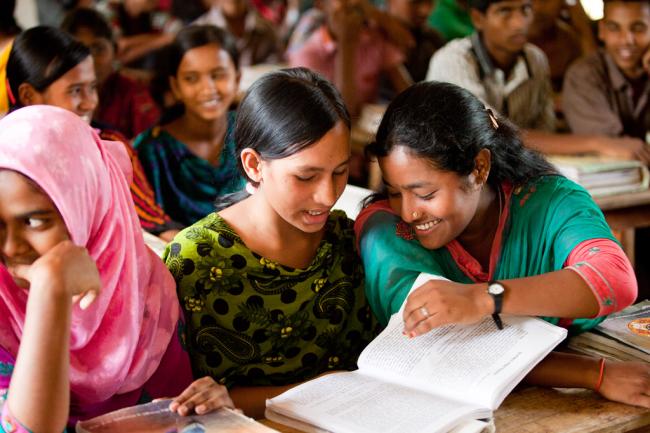
Education needs to change fundamentally to meet global development goals
There is an urgent need for greater headway in education. On current trends, the world will achieve universal primary education in 2042, universal lower secondary education in 2059 and universal upper secondary education in 2084. This means the world would be half a century late for the 2030 SDG deadline.
The Report, Education for people and planet, shows the need for education systems to step up attention to environmental concerns. While in the majority of countries, education is the best indicator of climate change awareness, half of countries’ curricula worldwide do not explicitly mention climate change or environmental sustainability in their content. In OECD countries, almost 40% of 15-year-old students only have basic knowledge about environmental issues.
“A fundamental change is needed in the way we think about education’s role in global development, because it has a catalytic impact on the well-being of individuals and the future of our planet,” said UNESCO Director-General, Irina Bokova.
“Now, more than ever, education has a responsibility to be in gear with 21st century challenges and aspirations, and foster the right types of values and skills that will lead to sustainable and inclusive growth, and peaceful living together.”
Education systems must take care to protect and respect minority cultures and their associated languages, which contain vital information about the functioning of ecosystems. But the Report shows 40% of the global population are taught in a language they don’t understand.
Education systems need to ensure they are giving people vital skills and knowledge that can support the transition to greener industries, and find new solutions for environmental problems. This also requires education to continue beyond the school walls, in communities and the workplace throughout adulthood. Two-thirds of all adults lack financial literacy; 37% of adults in EU countries attended adult education in 2011. Only 6% of adults in the poorest countries have ever attended literacy programmes.
“If we want a greener planet, and sustainable futures for all, we must ask more from our education systems than just a transfer of knowledge. We need our schools, universities and lifelong learning programmes to focus on economic, environmental and social perspectives that help nurture empowered, critical, mindful and competent citizens.” said Aaron Benavot, Director of the GEM Report.
There is also an urgent need for education systems to impart higher skills aligned with the demands of growing economies, where many jobs are being automated and skill sets are changing fast.
On current trends, by 2020, there will be 40 million too few workers with tertiary education relative to demand. The Report shows this change is vital: achieving universal upper secondary education by 2030 in low income countries would lift 60 million out of poverty by 2050.
Inequality in education, interacting with wider disparities, heightens the risk of violence and conflict.
Across 22 countries in sub-Saharan Africa, regions that have very low average education had a 50% chance of experiencing conflict within 21 years.
The Report calls on governments to start taking inequalities in education seriously, tracking them by collecting information directly from families.
The Report emphasizes that the new global development agenda calls for education ministers and other education actors to work in collaboration with other sectors. It lists various benefits that could come from this way of working, including:
- Health interventions could be delivered through schools: by one estimation, delivering simple treatments such as micronutrient pills through schools would cost one tenth of the price of using mobile health units.
- Farmer field schools could help increase crop yields by 12% leading to sustainable increases in food production
- Educating mothers to lower secondary education in sub-Saharan Africa by 2030 could prevent 3.5 million child deaths between 2050-60.
Photo: UNICEF/Tapash Paul
Support Our Journalism
We cannot do without you.. your contribution supports unbiased journalism
IBNS is not driven by any ism- not wokeism, not racism, not skewed secularism, not hyper right-wing or left liberal ideals, nor by any hardline religious beliefs or hyper nationalism. We want to serve you good old objective news, as they are. We do not judge or preach. We let people decide for themselves. We only try to present factual and well-sourced news.







